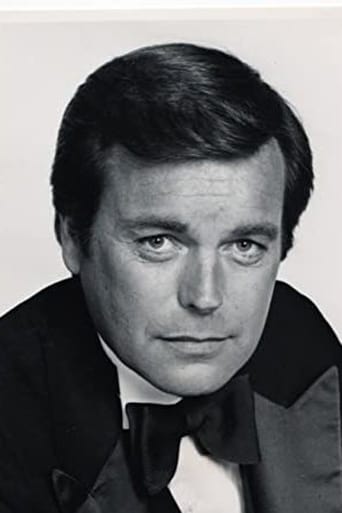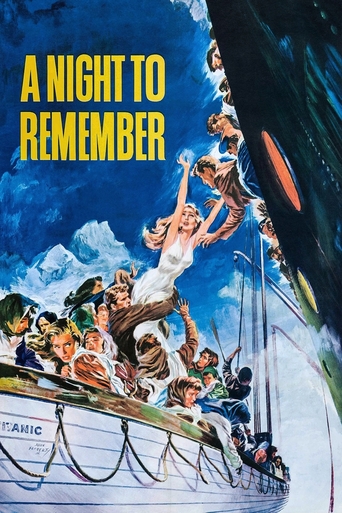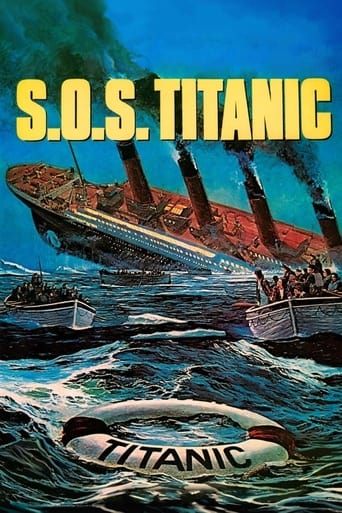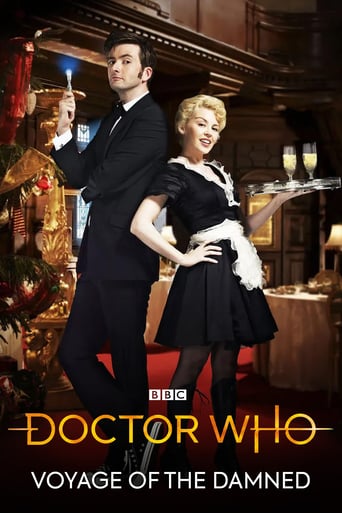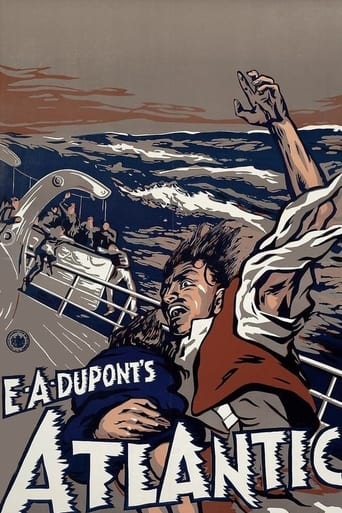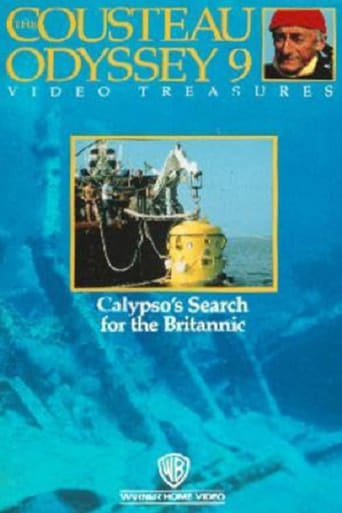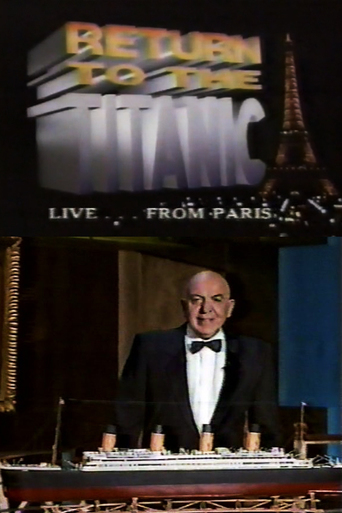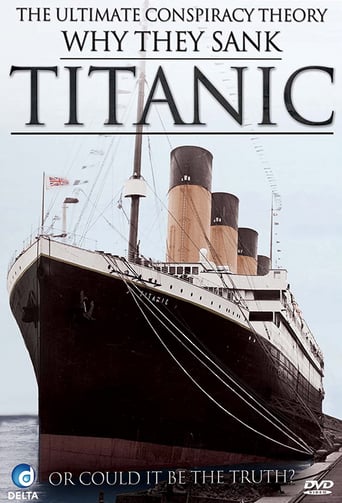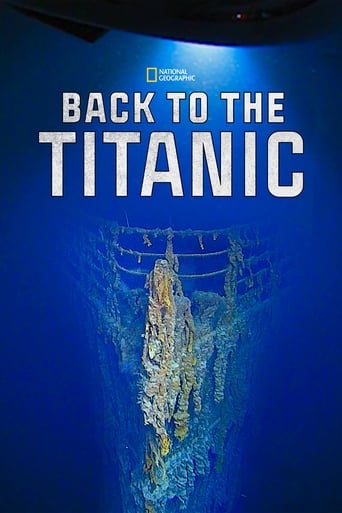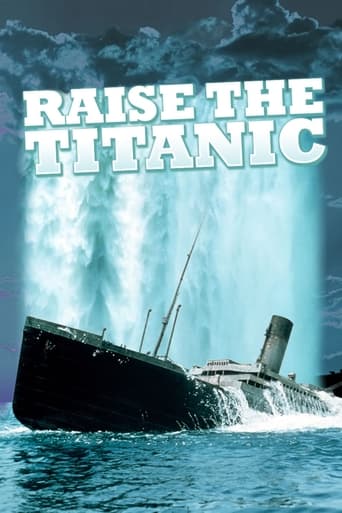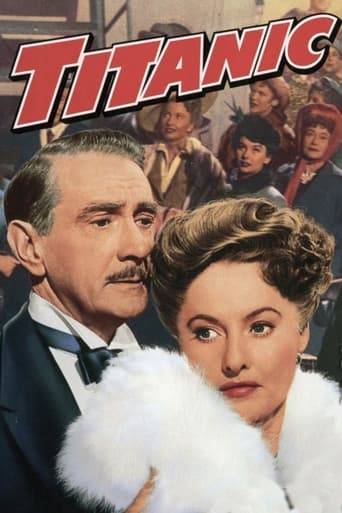
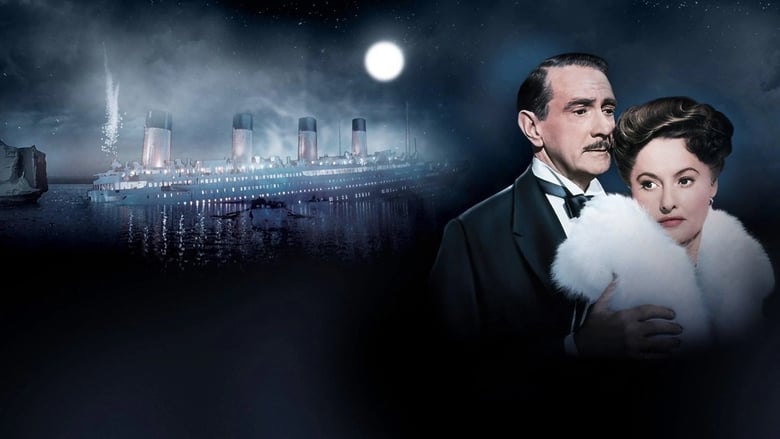
Titanic (1953)
Unhappily married, Julia Sturges decides to go to America with her two children on the Titanic. Her husband, Richard also arranges passage on the luxury liner so as to have custody of their two children. All this fades to insignificance once the ship hits an iceberg.
Watch Trailer
Cast
Similar titles

Reviews
If the ambition is to provide two hours of instantly forgettable, popcorn-munching escapism, it succeeds.
It's entirely possible that sending the audience out feeling lousy was intentional
The film creates a perfect balance between action and depth of basic needs, in the midst of an infertile atmosphere.
The story, direction, characters, and writing/dialogue is akin to taking a tranquilizer shot to the neck, but everything else was so well done.
A couple of melodramatic stories that go nowhere are used to anchor this film whose sole reason for existence is (or was) to show audiences at the time what the sinking of the famously doomed ocean liner probably looked like. The exact same description could be used for the 1997 phenom directed by James Cameron, except that advanced technology allowed that film to fill out the destruction of the ship to epic proportions. As a result, there's really no reason to watch this 1953 version, unless you just want something that's a lot shorter. I would normally say actresses like Barbara Stanwyck and Thelma Ritter are reason enough, but their talents are wasted on this ridiculously thin screenplay, which inexplicably won writers Charles Brackett, Walter Reisch, and Richard Breen an Oscar in 1953."Titanic" was also nominated for its black and white art direction, and it's kind of interesting to see how similar the recreation of the ship's interior is to the 1997 version (the answer is....pretty similar).Grade: C
One of the most fateful and foreboding stories ever committed to film, this version is by far the best cinematic treatment of the epic ocean disaster of 1912. A fictional but plausible story of the breakup of a marriage and the effects on a wealthy family overlay the real-life cataclysmic end to the unsinkable boat, the largest moving object ever built at the time. This blatant irony is unnerving.The fictional story is well written with good plot flow and transitions. Characters are well defined and interesting. What I like here is the contrast between the personal pettiness of Julia (Barbara Stanwyck) and Richard (Clifton Webb), against the ominous and overarching doom toward which they are unknowingly moving.Similarly, Captain Smith (Brian Aherne) goes about his ship duties in a most nonchalant manner, just one more voyage among countless others. Arguably, the ship itself is the main character, majestic, stately, grand, and luxurious, matching its first-class passengers, the focus of this story.The script is terrific but the production may be even better. Production design and costumes are detailed and seem authentic for that era. Photographic effects of the ship sinking, combined with that mournful wailing sound, magnify the drama. Absence of score enhances realism, and songs are appropriately melancholy. Casting and acting range from acceptable to great; Thelma Ritter gives an unusually good performance.Some Titanic films convey a semi-documentary look and feel; characters in these films are mere props, lacking humanity. By contrast, "Titanic" (1953) has heart and soul. After all, the epic event was first and foremost a story about people, individuals with personal problems and dreams for the future. That's what makes this film so emotionally rich.With its poetic script and terrific execution, "Titanic" (1953) gives us a timeless story of ominous fate, a poignant humanistic story of misplaced trust in technology, and the dramatic contrast between short-term pettiness and misfortune so dire as to overwhelm those affected for the rest of their lives.
Knowing that the definitive cinematic depiction of the tragic events – Roy Ward Baker's A NIGHT TO REMEMBER (1958) – was only a few years away, always seemed to me an indication that this major Hollywood studio version was a redundant production. It has been shown a few times on Italian TV over the years but I never bothered with it, and I had even recorded it on VHS off a Saturday night local TV screening; seeing it being given the prestigious "Fox Studio Classics" treatment on DVD made me prick up my ears somewhat (though still not enough for me to purchase a copy!) but, chancing upon it as a DVD rental, I eventually relented. Still, it has taken this month-long Oscar marathon to arrive at an actual viewing; incidentally, this is now the fifth screen retelling of the historical nautical disaster that I have gotten under my belt: apart from the aforementioned British classic, there were the archaic Atlantic (1929), the propagandist 1943 German version, S.O.S. TITANIC (1979; TV) and the undeservedly Oscar-laden 1997 romance. Tellingly, while this version of TITANIC did emerge an Oscar winner, it was not in the expected Special Visual Effects category – for which George Pal's THE WAR OF THE WORLDS was the sole nominee and eventual winner that year – but the soap opera-like screenplay courtesy of producer Charles Brackett (Billy Wilder's former collaborator), Walter Reisch and Richard L. Breen! Learning that Vincente Minnelli's THE BAND WAGON and Anthony Mann's THE NAKED SPUR were also competing in that category, makes TITANIC's win all the more ludicrous (the Leslie Halliwell Film Guide opines that it was "an excellent example of studio production is squandered on a dim script which arouses no excitement"!); for the record, the film also received a deserving Oscar nod for its production design and director Negulesco an unaccountable one for the Director's Guild Award. Indeed the all-important shipwreck takes up less than a third of the film's typically lean 98-minute running-time and, for the previous hour-plus, we are regrettably treated to the class- conscious disintegrating marriage between "common" Barbara Stanwyck and snobbish Clifton Webb and the blooming romance between 'common' Robert Wagner and snobbish Audrey Dalton (the legitimate offspring of the Stanwyck-Webb union – there is also much eye-rolling emoting over the younger son's attachment to a father who has chosen to disown him!). A measure of the film's ickiness is having the latter repeatedly calling her father "angel"(!) and the former teaching his newfound girlfriend the newest American dance craze "The Navajo Rag"! Apart from the obligatory lush production values, what remains to tickle the viewer's flagging interest is the fine cast assembled to impersonate the fated vessel's crew (stolid captain Brian Aherne and concerned second officer Edmund Purdom – who is surprisingly uncredited despite the amount of screen time and the importance of his role!) and passenger list (defrocked alcoholic priest Richard Basehart, indomitable Molly Brown stand-in Thelma Ritter and cowardly cad Allyn Joslyn); the film's concluding morose statistical narration is provided by a similarly unacknowledged Michael Rennie.
Compelling, excellent version of the tragedy. While there was much to like in the more recent version I've always found this one to be the superior of the two. Clifton Webb and Barbara Stanwyck are perfectly cast as a wealthy couple whose marriage is disintegrating. They seem completely natural in their surroundings and their performances could not be bettered. The love story is sweet and unlike the newer version makes sense since both characters are from the same class, the only way in that era that they would mingle, class division was too ingrained at the time for people to move freely about the ship. A dolled up Thelma Ritter is a hoot as the unsinkable Molly Brown even though she is called Maude Young here. Not as technically sophisticated as the James Cameron version but much more emotionally resonant.


